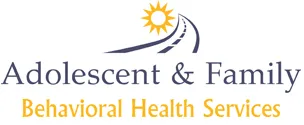“I hope you have a daughter just like you someday!” I’m not sure how many times I heard those words over the course of my childhood and teen years.
Fast forward a lot of years. I now have that daughter; but she is nothing like me. And it’s hard. My daughter is shy, uninterested in sports, has difficulty speaking up for herself, and has just a couple good friends and would prefer to keep it that way. I am outgoing, a lifelong athlete, feel it is my moral responsibility to speak up for the underdog, and enjoy a large circle of friends.
If my daughter was like me, I would understand her better. I feel like I could parent her better. I would know how to help her be a social butterfly, I would teach her to throw the perfect spiral, and I would show her how to stand up to a bully. Instead, I have been blessed with a child very unlike me, and the challenge is to parent her based on her personality not mine. What I think my mom was really trying to say, is that parenting is really hard. What she was trying to say is that sometimes she just couldn’t understand me and didn’t know how to help me because we were so different. Parenting a child with a personality or disposition different than your own can be especially hard. And parenting a child with intense emotions and high risk behaviors, it can feel like a journey with no end. What I love about our therapists at AFBHS is that we specialize in helping children and adults manage those intense emotions and risky behaviors, we help parents and other family members learn the skills to be effective in parenting or supporting loved one.
I admit don’t always know how to guide a shy child who comes home sad from being bullied. If it were happening to me, I would be assertive and take charge of the situation! But that’s me….and my personality…not hers. When words escape me, she and I used mindfulness skills and we both love it. Parenting a child with a vastly different personality than your own is tough. It’s puzzling, frustrating; good news, there is a DBT skill for that. Walking the Middle Path is used in DBT to find balance verses being on the extreme of any continuum; my daughter and I balance acceptance and change. Some of you are parenting kids with a lot of highly expressed emotions. Some of you are parenting kids with a lot of bottled up emotions. But whichever kid you are parenting….know that we all struggle at times. Using DBT skills will help lessen the struggle.
Giving children the freedom to be exactly who they are may be the best gift we can give them as parents. Admitting to our children that parenting is tough and that we are still trying to figure this all out is okay. If you haven’t attended our Family Matters group to learn how to use DBT skills to improve your family’s communication and understanding of each other, I highly recommend you do. In the Family Matters Group you will learn how to give your children the freedom needed while balancing boundaries and consequences.
What I love about DBT is it teaches us to be mindful in our approach to others. It teaches us that sometimes we need to accept situations and people exactly as they are and it teaches us how to communicate with people we may not always understand.
493 Century Lane
Holland, MI 49423
2566 Woodmeadow Drive SE
Grand Rapids, MI 49546
55 Harrow Lane
Saginaw, MI 48638
“I hope you have a daughter just like you someday!”
posted: May 19, 2021.
SUBSCRIBE TO THE BLOG
CATEGORIES
- Adolescence
- Articles
- Author
- Books
- Borderline Personality Disorder
- Boundaries
- Ceremonies in Therapy
- Children
- Christian/Spirituality
- Dialectical Behavior Therapy (DBT)
- Family
- Family Matters
- Grief and loss
- Groups
- Holidays
- In The News
- Marriage and Family
- Movies
- Novel
- Paige Agnew
- Parenting
- Race
- Self Injury
- Self-Care
- Self-Esteem
- Self-Improvement
- Short Story
- Social Justice
- Suicide Prevention
- Tools You Can Use
- Uncategorized
- Validation
FOLLOW ME

